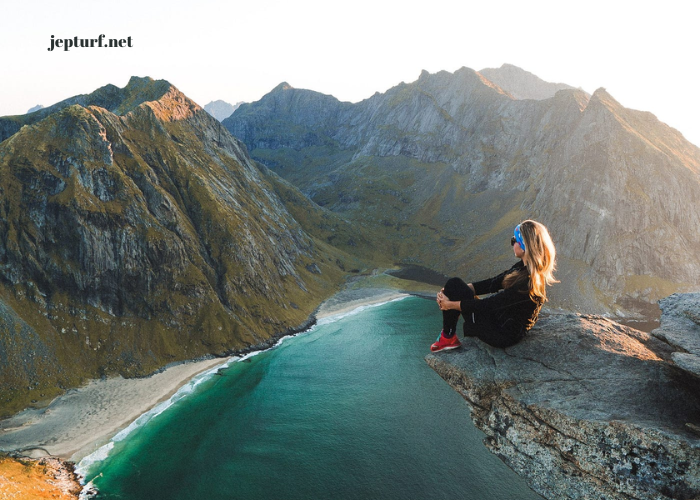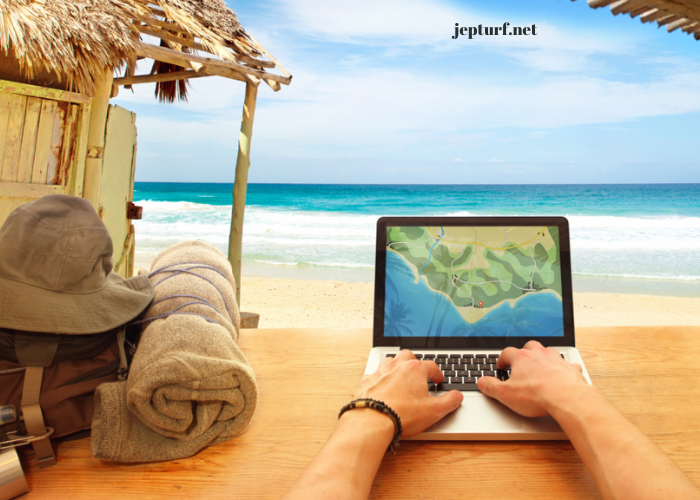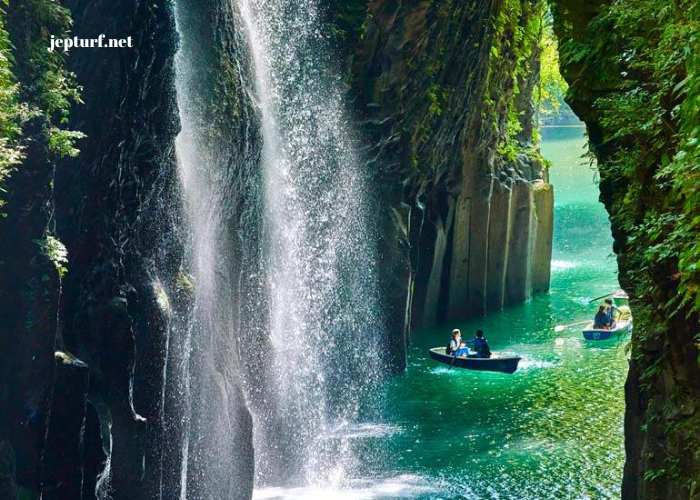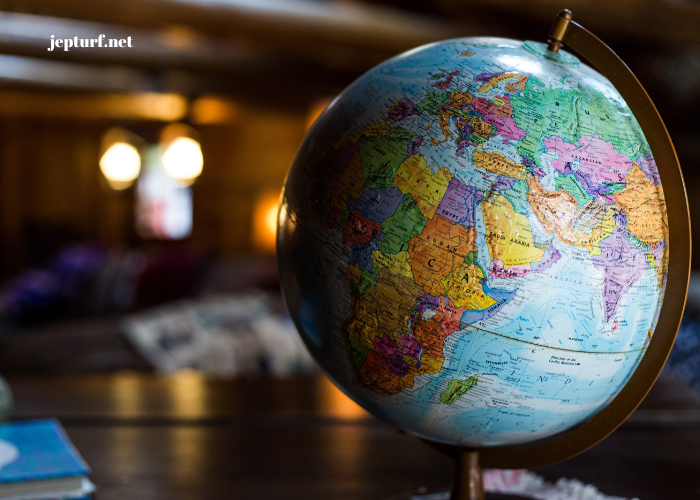Travel is not merely a physical journey; it is a voyage of the soul. It’s an exploration of the world around us and an inner exploration of ourselves. Through travel, we escape the confines of our daily routines, our comfort zones, and our familiar surroundings. We venture into the unknown, seeking new experiences, people, and places that challenge our perspectives and expand our horizons. Travel is a transformative experience, and within its tales, there lie stories that go beyond the ordinary, stories of escapes and encounters that transcend boundaries.
In this article, we will delve into the captivating world of travel stories that have the power to transport us to far-off lands, introduce us to diverse cultures, and evoke the spirit of adventure. These narratives are more than just accounts of places visited; they are windows into the human experience, revealing the universal themes of curiosity, connection, and transformation that make travel a profound and essential part of our lives.
The Odyssey: An Epic Journey of Self-Discovery
No discussion of travel stories that transcend boundaries can begin without mentioning Homer’s “The Odyssey.” This epic poem, dating back to ancient Greece, is the ultimate tale of escape and encounter. It tells the story of Odysseus, the cunning hero, and his arduous journey back home after the Trojan War.
What makes “The Odyssey” so enduring and relevant is not just the physical distances Odysseus covers, but the emotional and psychological odyssey he undertakes. His travels are fraught with challenges and encounters with mythical creatures and gods, but they also reveal the depths of human resilience, the yearning for home, and the quest for self-discovery.
As readers, we are transported to a world of enchanting islands, cyclopses, sirens, and gods who toy with mortals. But beneath the layers of fantasy and adventure, “The Odyssey” is a reflection of the human condition, a story of perseverance in the face of adversity, and a testament to the power of storytelling to transcend time and culture.
“Eat, Pray, Love”: A Modern Quest for Self and Spirituality
Jumping forward in time to a more contemporary work, we find Elizabeth Gilbert’s memoir “Eat, Pray, Love.” This book takes us on a very different kind of journey – a journey of self-discovery, healing, and spiritual exploration.
In “Eat, Pray, Love,” Gilbert embarks on a year-long adventure across Italy, India, and Indonesia following a painful divorce. Her travels are not driven by the desire for adventure or exploration of new cultures but by a profound inner quest for self-understanding and spiritual enlightenment.
Gilbert’s escapades in Italy lead her to savor the pleasures of food, in India, she finds solace in meditation and self-reflection, and in Indonesia, she discovers the balance between pleasure and devotion. Through her honest and heartfelt narrative, readers are reminded that travel is not always about going places but about going within.
This memoir has resonated with countless readers because it taps into universal themes of healing, self-acceptance, and the search for meaning in life. It shows that sometimes the most transformative journeys are not the ones that take us to far-flung destinations but the ones that bring us face to face with our own inner landscapes.
“Into the Wild”: A Journey to the Edge of Civilization
Moving from memoirs to real-life stories, we encounter Jon Krakauer’s “Into the Wild.” This book recounts the incredible journey of Christopher McCandless, a young man who gave up his worldly possessions and ventured into the Alaskan wilderness in search of a simpler, more authentic life.
McCandless’s escape from society and his encounters with the unforgiving wilderness make for a gripping narrative, but what makes “Into the Wild” truly powerful is the way it challenges our perceptions of freedom, identity, and the human connection with nature.
As McCandless travels deeper into the wild, he sheds the trappings of modern life and seeks a raw, unmediated encounter with the natural world. His story raises questions about the boundaries between civilization and wilderness, the pursuit of individualism, and the consequences of self-imposed isolation.
“Into the Wild” is a cautionary tale that reminds us of the delicate balance between our longing for escape and the need for human connection. It forces us to confront the limitations of our own boundaries and the consequences of pushing them to the extreme.
“The Alchemist”: A Journey of Dreams and Destiny
Paulo Coelho’s “The Alchemist” takes us on a mystical journey with Santiago, a shepherd boy who dreams of finding treasure in the Egyptian pyramids. This quest for material wealth evolves into a journey of self-discovery and spiritual awakening.
Set against the backdrop of the expansive Sahara Desert and other exotic locations, Santiago’s story is a fable that explores the idea that our dreams and desires are not separate from our life’s purpose but integral to it.
Through Santiago’s encounters with a series of mentors, travelers, and unexpected allies, Coelho weaves a narrative that speaks to the universal human yearning for fulfillment, destiny, and the pursuit of one’s “Personal Legend.” This term, coined in the book, represents the unique path that each person must follow to achieve their true potential.
“The Alchemist” has resonated with readers around the world because it taps into our collective desire for meaning and purpose in life. It reminds us that our journeys, no matter how far-flung or humble, are part of a larger quest to understand ourselves and our place in the world.
“The Motorcycle Diaries”: A South American Adventure of Liberation
Ernesto “Che” Guevara is a name often associated with revolutionary politics, but before he became an iconic figure of the Cuban Revolution, he embarked on a transformative journey across South America. This journey is chronicled in “The Motorcycle Diaries,” a travelogue that reveals the profound impact travel can have on one’s worldview and political consciousness.
In 1952, Guevara and his friend Alberto Granado set out on a motorcycle journey through Argentina, Chile, Peru, Colombia, and Venezuela. What begins as a youthful adventure to explore the continent soon turns into a voyage of social and political awakening.
Throughout their travels, Guevara and Granado encounter the harsh realities of poverty, injustice, and exploitation faced by indigenous communities and the working class. These experiences fuel Guevara’s commitment to social justice and his later revolutionary activities.
“The Motorcycle Diaries” illustrates how travel can be a catalyst for social and political consciousness. It’s a reminder that our encounters with different cultures and the inequalities we witness can inspire us to advocate for change and to see the world through a more compassionate lens.
“Wild”: A Journey of Healing and Self-Discovery
Cheryl Strayed’s memoir “Wild” is a gripping account of her solo hike along the Pacific Crest Trail, a grueling 1,100-mile trek from the Mojave Desert to Washington State. This journey, undertaken as a way to heal from personal tragedies and find herself again, is a powerful example of how the wilderness can be both a challenge and a source of redemption.
Strayed’s story is one of physical endurance and emotional resilience. Her encounters with fellow hikers, the beauty and brutality of nature, and her own inner demons form the backdrop for a deeply personal narrative of self-discovery and healing.



